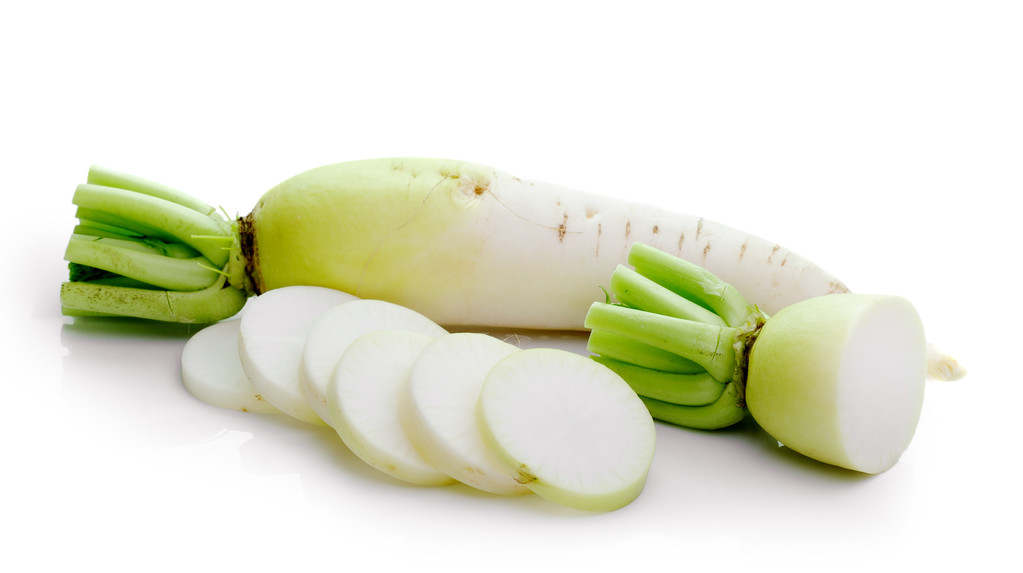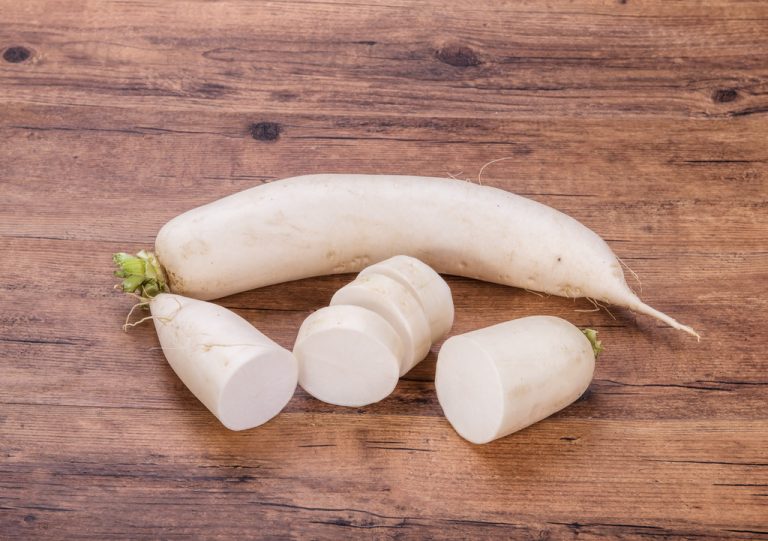It is a popular kitchen vegetable because of its pungent aroma, but is radish also healthy? Here you can find out everything about the nutritional values and side effects of the root.
Radish not only gives your dishes a pleasant spiciness, it is also healthy thanks to its valuable ingredients. Whether raw as a crunchy snack or in a salad: the root vegetable is a real all-rounder.

These nutrients make radish healthy
The radish owes its pungent taste primarily to the mustard oils it contains. It has been proven that these kill pathogens such as bacteria and viruses and thus play an important role in a strong immune system. They should also be able to strengthen the liver, bile and digestion. But radish contains even more substances that make it healthy.
Vitamin C: With 200 grams of radish you have already covered half of your daily vitamin C requirement. The root vegetable is therefore an important support for your body’s defences.
Vitamin B1 and B2: Your body needs vitamin B1 or thiamine to break down carbohydrates, while vitamin B2 supports various metabolic processes.
Flavonoids have a positive effect on the immune system and are said to help with certain cardiovascular diseases.
Bitter substances: In addition to mustard oils, radishes contain numerous bitter substances that have an antibiotic, cholagogue and expectorant effect.
Potassium ensures that the stimulus transmission of the muscles works properly. The mineral also has a positive effect on cell growth and blood pressure.
Sodium transmits movement impulses from the nerve tracts to the muscles. If you have a sodium deficiency, you often have to struggle with headaches and nausea.
Magnesium plays an important role in your body’s fat burning process.
Calcium is a must for strong teeth and bones and also regulates the acidity of your body.
In addition to calcium, phosphorus is one of the most important components of the skeleton and strengthens the cells.
Iron transports oxygen in the blood and strengthens your immune system.
Already knew? The mustard oil in radishes causes more bile to be produced in your liver. In this way, fat digestion is stimulated. If you suffer from bloating caused by bile problems, eating radish in moderation can provide relief. However, it is best to talk to your doctor beforehand.
Radish as a healthy fitness vegetable?
Radish is not only full of healthy ingredients, according to Austria’s public health portal, it is also very low in calories with 15 calories per 100 grams. The root vegetables also contain hardly any carbohydrates (about 2 grams per 100 grams). This makes radish a healthy low-carb snack for in between meals. To do this, you must first wash the radish thoroughly. Then cut it into thin slices and sprinkle some salt on top to draw out some of the water from the radish. Complete!
The mustard oils in radishes can bring another advantage. Their sharpness is supposed to boost fat burning and help you lose weight. Especially in the black radish you can use the mustard oils as cough syrup!

When you should give up the healthy radish
As healthy as radish is, the spicy mustard oils are not digestible for everyone. If, for example, you often complain of stomach problems after eating, you should rather eliminate radish from your diet: According to the DocJones health portal, the mustard oils in radishes can irritate your stomach lining. So it is better to switch to more stomach-friendly vegetables. Furthermore, too much radish can loudly lead to flatulence. If you have gallstones, DocJones also advises not to eat the root vegetables.

